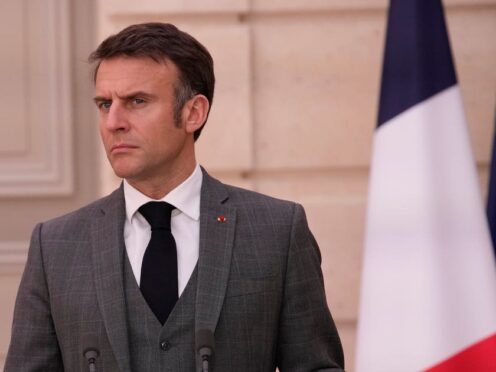
French President Emmanuel Macron has announced new legislation to legalise “aid in dying” that will allow adults facing end-of-life illness to take lethal medication.
The move come after a report last year indicated that most French citizens support legalising end-of-life options.
In an interview published on Monday by French newspapers La Croix and Liberation, Mr Macron said the new bill will be restricted to adults suffering from an incurable illness who are expected to die in the “short or middle term” and who are suffering “intractable” physical or psychological pain.
He said the law will offer “a possible path, in a determined situation, with precise criteria, where the medical decision is playing its role”.
He gave the example of of people with terminal cancer, some of whom go abroad to end their lives.
Only people aged 18 or above who are capable of forming their own views will be allowed to enter the process, meaning those with severe psychiatric conditions and neurodegenerative disorders such as Alzheimer’s disease will not be eligible, Mr Macron said.
Patients who seek to enter the process will need to reconfirm their choice after 48 hours and they should then receive an answer from a medical team within two weeks, the president added.
A doctor will then deliver a prescription, valid for three months, for the lethal medication. People will be able to take the medication at home, at a nursing home or at a health care facility.
If their physical condition does not allow them to do it alone, they will be allowed to get help from someone of their choice or by a doctor or nurse.
Mr Macron said the bill will refer to “aid in dying… because it’s simple and humane”, rather than terms like euthanasia or medically assisted suicide.
Medically assisted suicide involves patients who meet certain criteria taking, of their own free will, a lethal drink or medication prescribed by a doctor. Euthanasia involves doctors or other health practitioners giving patients who meet certain criteria a lethal injection at their own request.
Mr Macron set no date for the legislation to be applied, saying it will need to follow a months-long legislative process that will start in May.
A 2016 French law provides that doctors can keep terminally ill patients sedated before death but stops short of allowing assisted suicide and euthanasia.
Assisted suicide is allowed in neighbouring Switzerland as well as in Portugal. Euthanasia is legal in the Netherlands, Belgium, Luxembourg and Spain under certain conditions.

Enjoy the convenience of having The Sunday Post delivered as a digital ePaper straight to your smartphone, tablet or computer.
Subscribe for only £5.49 a month and enjoy all the benefits of the printed paper as a digital replica.
Subscribe